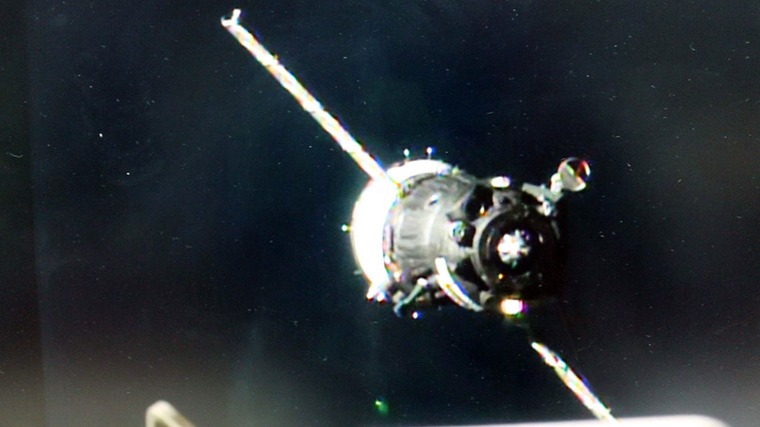CAPE CANAVERAL, Fla. — The International Space Station gained three new residents Saturday, including the oldest and most experienced woman to orbit the world.
A bit of Mars also arrived, courtesy of a Frenchman who brought along a small piece of a Mars meteorite.
Launched Thursday from Kazakhstan, the Russian Soyuz capsule docked at the 250-mile-high outpost as NASA got set to launch a weather satellite from Florida. The Soyuz delivered NASA astronaut Peggy Whitson, French astronaut Thomas Pesquet and Russian cosmonaut Oleg Novitskiy. They joined three men already on board, one American and two Russians.

This is the third space station mission for Whitson, who at 56 is older than each of her crewmates.
She already holds the record for most time in space for a woman: nearly 400 days during her various missions. By the time she returns next spring, she should break the record for any American, man or woman.
Related: Will President Trump Invest in Space Exploration?
A biochemist by training, Whitson will celebrate her 57th birthday at the orbiting lab in February. Until Thursday, no woman older than 55 had flown in space.
Pesquet, meanwhile, is making his first spaceflight and Novitskiy his second.
Before rocketing away, Pesquet told reporters he was taking up a piece of a Mars meteorite to illustrate the necessary union between human and robotic explorers. He intends to bring the stone back with him to Earth in six months. It then will launch aboard a Mars rover and return to its home planet.
"So it's going to be the most experienced space traveler there is in the world," Pesquet said Wednesday at the Baikonur Cosmodrome.
Related: Will Trump and Tech Be the 'Disaster' Some Have Predicted?
"The idea is to show that space exploration is just the whole ... we're not competing against robotic exploration, we're all working together. What we do on the (space station) is just one step on that road to exploration."
Sunday marks the 18th anniversary of the launch of the first space station piece.